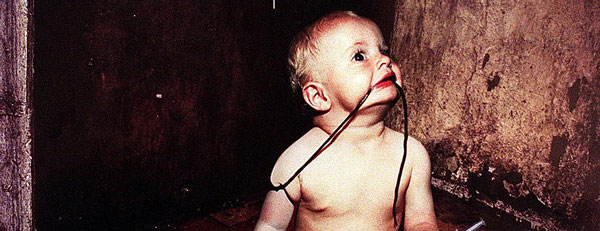
Charity Cannibalism
The very idea of a market, or better, of markets places/techniques of exchange, for the purpose of trading on human misery – is obscene.
 The video appeals for donations to alleviate the suffering of children in foreign lands reach crescendo during the weeks between Thanksgiving and Christmas. In January over the dinner evening news hour, there’s a commercial soliciting aid for animals in dire circumstances.
The video appeals for donations to alleviate the suffering of children in foreign lands reach crescendo during the weeks between Thanksgiving and Christmas. In January over the dinner evening news hour, there’s a commercial soliciting aid for animals in dire circumstances.
Television commercials cost money to produce. There’s the expense of a block of time, so many airings of a commercial in a time slot, as contracts are written.
Certainly expenses are to be recouped, and more. Beyond the monetary, the profit potential of nonprofit “charity work” what of the existential catharsis, to assuage vaguely felt guilt? Click the QR code, make a donation and feel better!
Markets are moving and unpredictable. Any market is dynamic, the fluctuating negotiation of worth, the expression of psychologies of desire and anxiety, of the human collective – fundamentally unmanageable. We attempt to manage no matter that we know markets oscillate between boom and bust. Markets are perpetually hungry. Voracious.
But is this true? Have we made a market of poverty, of extracting value from human suffering? What about this as a form of “waste-reprocessing”?
And when global south countries prove insufficient to satisfy this market…
Why then we’ll include the misery of our own climate catastrophes.
I need not mention L.A.
…the management of catastrophe.
quite specifically, of that catastrophe
which is
the slow extermination
of the rest of the world.
We have long denounced
the capitalistic, economic exploitation
of the poverty of ‘the other half of the world’.
We must today denounce the moral and sentimental
exploitation of that poverty
–charity cannibalism being worse
than oppressive violence.
The extraction and humanitarian reprocessing
of a destitution which has become equivalent
of oil deposits and gold mines.
The extortion of the spectacle of poverty and,
at the same time, of our charitable condescension:
a worldwide appreciated surplus
of fine sentiments and bad conscience.
We should, in fact, see this
not as the extraction of raw materials,
but as a waste-reprocessing enterprise.
…our whole culture lives off
this catastrophic cannibalism,
relayed
in cynical mode by the news media,
and carried forward in moral mode
by our humanitarian aid, which is a way
of encouraging it and ensuring its continuity,
just as economic aid is a strategy
for perpetuating under-development.
But when the catastrophe market
itself reaches crisis point…,
when they can no longer be traded
like coffee or other commodities,
the West will be forced
to produce its own catastrophe for itself,
in order to meet its need for spectacle,
and that voracious appetite for symbols
which characterize it…
The Illusion of the End, by Jean Baudrillard, trans. by Chris Turner, page 68